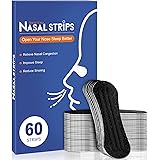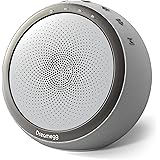Unlocking Relief: Combatting Stress-Related Teeth Grinding and Clenching
Imagine waking up with a dull ache in your jaw, a persistent headache, or a surprising sensitivity in your teeth. Many individuals experience these frustrating symptoms, often unaware that the culprit is a common condition known as bruxism, or stress-related teeth grinding and clenching. The short video above offers a visual introduction to a potential solution, but understanding the nuances of this nighttime habit and how to effectively manage it is crucial for long-term oral health and overall well-being.
Nighttime bruxism can feel like a silent saboteur, working unconsciously while you sleep to inflict damage. This involuntary grinding and clenching puts immense pressure on your teeth, jaw muscles, and temporomandibular joints (TMJ), leading to a cascade of uncomfortable and potentially serious issues. Fortunately, understanding the causes and available remedies can empower you to take back control of your oral health.
The Hidden Impact of Nighttime Teeth Grinding (Bruxism)
Teeth grinding is more than just an annoying habit; it is a significant dental concern affecting millions. While occasional grinding may not cause lasting harm, chronic bruxism can lead to a range of severe problems. Constant friction and force can gradually wear down tooth enamel, exposing the sensitive dentin underneath and making teeth vulnerable to decay and fractures.
Think of your teeth like the gears in a finely tuned machine; excessive, unlubricated grinding causes irreversible wear and tear. This relentless pressure can also result in chips, cracks, and even loose teeth over time. Beyond the teeth themselves, the muscles involved in chewing become chronically overworked, leading to jaw pain, stiffness, and headaches that often originate near the temples.
Many individuals suffering from bruxism report persistent tension in their neck and shoulders, reflecting the widespread muscular strain. Furthermore, the constant clenching can exacerbate or even trigger temporomandibular joint disorder (TMJD), characterized by clicking, popping, pain, or limited movement in the jaw joint. The quality of sleep for both the grinder and their partner can suffer significantly due to disruptive noises and discomfort.
Unraveling the Causes Behind Teeth Clenching
While the exact cause of bruxism can be multifaceted, stress and anxiety are frequently identified as major contributors. Our bodies often react to emotional tension by tensing muscles, and the jaw is no exception, becoming a common repository for pent-up stress. This can manifest as clenching during the day or grinding unknowingly through the night.
It’s like an internal pressure valve, where the stress of daily life finds an outlet in the powerful muscles of the jaw. Other contributing factors can include certain personality types, such as those who are highly competitive or aggressive, and conditions like sleep apnea, which disrupts normal sleep patterns. Lifestyle choices like excessive caffeine consumption or alcohol intake can also play a role, altering sleep architecture and increasing the likelihood of grinding episodes.
Additionally, misaligned teeth (malocclusion) or an abnormal bite might contribute to bruxism, as the jaw subconsciously tries to find a comfortable resting position. Certain medications, particularly some antidepressants, can list bruxism as a potential side effect. Identifying these underlying causes is a crucial step in developing an effective management plan.
Dental Guards: A Shield Against Nighttime Damage
One of the most immediate and effective ways to protect your teeth from the damaging effects of bruxism is through the use of a nighttime dental guard, also known as a mouthguard or night guard. These custom-fit or boil-and-bite devices create a physical barrier between your upper and lower teeth, absorbing the impact of grinding and clenching forces.
Consider a dental guard as a shock absorber for your teeth, preventing direct contact and distributing pressure more evenly across your dental arches. The Oral-B Nighttime Dental Guard, highlighted in the video, represents a convenient over-the-counter option for many individuals. It provides a soft, cushioned surface that not only protects enamel from erosion but also reduces the strain on your jaw muscles.
By preventing the teeth from meeting directly, a dental guard alleviates the muscle tension that leads to jaw pain and headaches. It offers a non-invasive solution, allowing you to sleep more soundly while safeguarding your valuable oral structures. Regular use of a dental guard can significantly mitigate long-term dental complications, saving you from extensive and costly restorative treatments down the line.
Choosing the Right Dental Guard for Your Needs
When considering a dental guard, several options are available, each with its own advantages. Custom-made dental guards, provided by your dentist, offer the most precise fit and optimal comfort. They are fabricated from impressions of your teeth, ensuring maximum protection and durability, much like a tailor-made suit for your mouth.
However, over-the-counter options, such as the Oral-B Nighttime Dental Guard, present a more accessible and affordable starting point. These typically come in a “boil-and-bite” design, allowing you to mold the material to the contours of your mouth at home. While not as exact as a custom guard, these can provide effective temporary or long-term relief for many users, especially those with moderate grinding habits.
When selecting an over-the-counter guard, look for features like a comfortable fit, durable material, and ease of cleaning. Ensure it allows for proper breathing and speaking, as an ill-fitting guard can cause more discomfort than relief. Read reviews and consider the specific benefits each product offers to find one that aligns with your individual needs for protection against stress-related clenching.
Beyond the Guard: Holistic Strategies for Bruxism Management
While a dental guard offers immediate protection for your teeth, addressing the root causes of bruxism, particularly stress, is equally important for comprehensive management. Incorporating stress-reduction techniques into your daily routine can significantly lessen the severity and frequency of grinding episodes. This holistic approach complements the physical barrier provided by a guard.
Practices like meditation, yoga, or deep breathing exercises can help calm the nervous system and reduce overall muscle tension. Engaging in regular physical activity also serves as an excellent outlet for stress, transforming mental strain into physical exertion. Establishing a consistent sleep schedule and creating a relaxing bedtime routine can also promote deeper, more restorative sleep, which is less conducive to grinding.
It’s akin to tending to a garden; the dental guard is like a protective fence, but addressing the soil quality (stress levels) ensures healthier growth. Avoiding stimulants like caffeine and alcohol, especially in the hours leading up to bedtime, can further enhance sleep quality. Practicing jaw relaxation exercises throughout the day, such as gently massaging your jaw muscles or consciously unclenching your teeth, can also build awareness and reduce habitual tension. If you suspect sleep apnea or have persistent pain, consulting a dentist or doctor is always recommended for a thorough diagnosis and personalized treatment plan for your stress-related teeth grinding.








